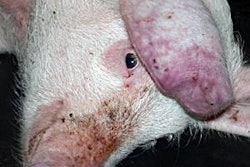State regulations that aim to control water pollution from agriculture fall short in enforcement and monitoring, largely due to limited funding and staff resources and "political resistance to regulation of agriculture," according to a report released March 29 by environmental groups.
The report, "Cultivating Clean Water: State-Based Regulation of Agricultural Runoff Pollution," was prepared by the Environmental Law & Policy Center, which released the report along with other groups, including the Mississippi River Cooperative, the Environmental Working Group, Public Employees for Environmental Responsibility, and the Gulf Restoration Network.
The study focuses on seven states with regulatory management of nonpoint source pollution: California, Delaware, Iowa, Kentucky, Maryland, Oregon, and Wisconsin. It recommends that regulations apply broadly to all agricultural operations and that implementing agencies be funded sufficiently to oversee compliance.
The consequences of noncompliance should include penalties that are significant enough to deter those violations, the report said. States should develop monitoring programs that are specifically designed to document water quality improvements resulting from these programs, it said.
According to the report, many states engage in little or no compliance monitoring. Some, including California and Maryland , require the filing of nutrient management plans and/or periodic monitoring/implementation reports. All conduct limited inspections of facilities to verify compliance, although Iowa , Kentucky , and Oregon generally only do so in response to a citizen complaint of a pollution problem.
















